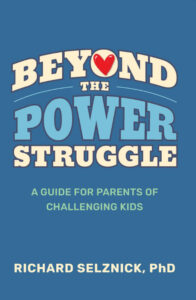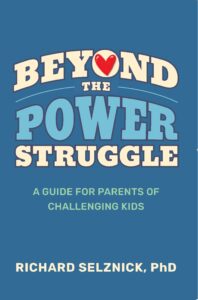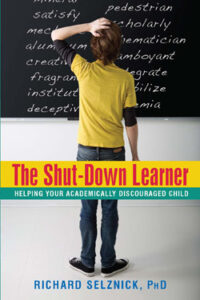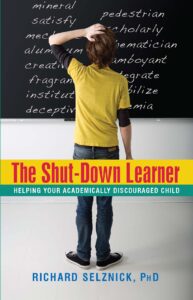“Ineffective, Inefficient, Irrational, Immoral and Indefensible”
 Most of you understand the concept of standard error of measurement (SEM).
Most of you understand the concept of standard error of measurement (SEM).
In a nutshell, SEM tells us that on any given day that you can be within an interval of confidence that an obtained score is accurate.
For example, if the obtained IQ score is 100, you can have about 99% confidence that with repeated administrations the score would fall within a range, say between 95 – 105.
For standardized tests such as the WISC-V (the gold standard cognitive measure used in special education assessments), there is no such thing as a “true score” as there is always the standard error of measurement to consider.
That explains the fury when a parent was told that her clearly struggling child was not eligible to receive services because the child missed eligibility by one point.
This is what occurred with 10-year-old, fourth- grader, Charles, who has been struggling greatly with his reading, spelling and writing since kindergarten. Some months before his special education assessment, I had conducted a dyslexia screening with Charles, which showed clear indicators of concern.
The school conducted a comprehensive special education evaluation that also identified significant issues with word identification, phonemic awareness, reading fluency, spelling and writing, which are the typical academic indicators for a learning disability, such as dyslexia.
When the school met with the mother to review the findings, stunningly she was told that the child was ineligible for services. That is, he would not be classified as eligible for an IEP.
As told to the mom, Charles fell short by one point, which did not meet the very strict standards of the discrepancy model utilized to determine eligibility.
Along with a few other states in the country, New Jersey uses and outmoded model that often leaves children like Charles struggling without any support or direct remediation.
This model requires there be a statistically significant difference between the child’s Full-Scale IQ and an overall score in reading.
When a pure quantitative discrepancy model is used, as it is in New Jersey, many kids are left completely in the lurch.
In an article written by Emerson Dickman, a special education attorney and former president of the International Dyslexia Association, he quoted leading experts regarding the use of a discrepancy model.
Here are a few choice ones:
“For 25 years we have used the IQ-achievement discrepancy model, a wait-to-fail model that is known to be ineffective, inefficient, irrational, immoral and indefensible.” (Dr. Douglas Carmine presentation during testimony to Congress on reauthorization of IDEA.)
“The formula is a “wait and fail” model and is immoral.” (Dr. Thomas Hehir, Director of Special Education Programs during Clinton Presidency.)
“IQ-Achievement discrepancy is not a valid means for identifying individuals with learning disabilities Robert Pasternack, Assistant Secretary for Office of Special Education)
Not only is the model unfair and immoral often offering no support to struggling children, it also leaves everything entirely up to parents to try and find outside services like tutoring that are never covered by insurance.
Basically, the unstated message given to parents with a struggling ineligible child is something like this, “Sorry, we’re done. Maybe you should talk to your pediatrician.”
As you can imagine, this is infuriating to parents.
(In next week’s post, we will elaborate on this point.)
Feel free to make comment below.
To receive future blog posts, register your email: https://shutdownlearner.com.
To Contact Dr. Richard Selznick for advice, consultation or other information, email: shutdownlearner1@gmail.com.

 Copyright, Richard Selznick, Ph.D. 2023, www.shutdownlearner.com.
Copyright, Richard Selznick, Ph.D. 2023, www.shutdownlearner.com.


 wuns a pon a time their was a boy wgo had no frends so he was always alon But than on day evry thing change His mom gave him a voilinto play it sounded horabel so he said I am never playing this again so one Day he went to in the stor and heard the guy play the vialin it sounded awsome so he said to his mom thats how I want to play well then you need to pratis his mom said and then he did and he was so good at it.
wuns a pon a time their was a boy wgo had no frends so he was always alon But than on day evry thing change His mom gave him a voilinto play it sounded horabel so he said I am never playing this again so one Day he went to in the stor and heard the guy play the vialin it sounded awsome so he said to his mom thats how I want to play well then you need to pratis his mom said and then he did and he was so good at it. Copyright, Richard Selznick, Ph.D. 2022, www.shutdownlearner.com.
Copyright, Richard Selznick, Ph.D. 2022, www.shutdownlearner.com. Started in 2009 upon the release of my first book, The Shut-Down Learner, there have been nearly 600 blog posts completed on a weekly basis over those years..
Started in 2009 upon the release of my first book, The Shut-Down Learner, there have been nearly 600 blog posts completed on a weekly basis over those years.. In my ongoing education, this week I learned about the “Barn Kids” and the “Populars.”
In my ongoing education, this week I learned about the “Barn Kids” and the “Populars.”
 With the arrival of newborn Emmett Gaetano Selznick last weekend, an official new chapter begins in our lives.
With the arrival of newborn Emmett Gaetano Selznick last weekend, an official new chapter begins in our lives. In my corner of the universe most of the issues that are brought to me include some variation on the following:
In my corner of the universe most of the issues that are brought to me include some variation on the following: Those of you following this blog for some time know there are some recurring themes.
Those of you following this blog for some time know there are some recurring themes.